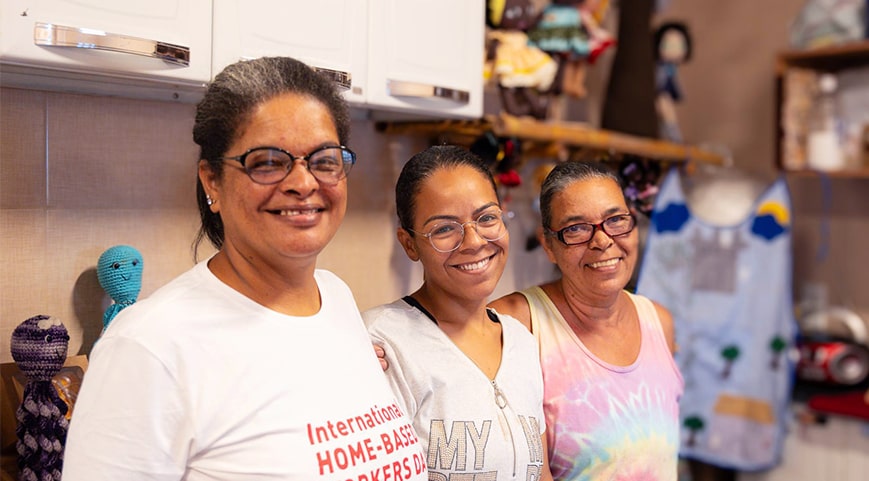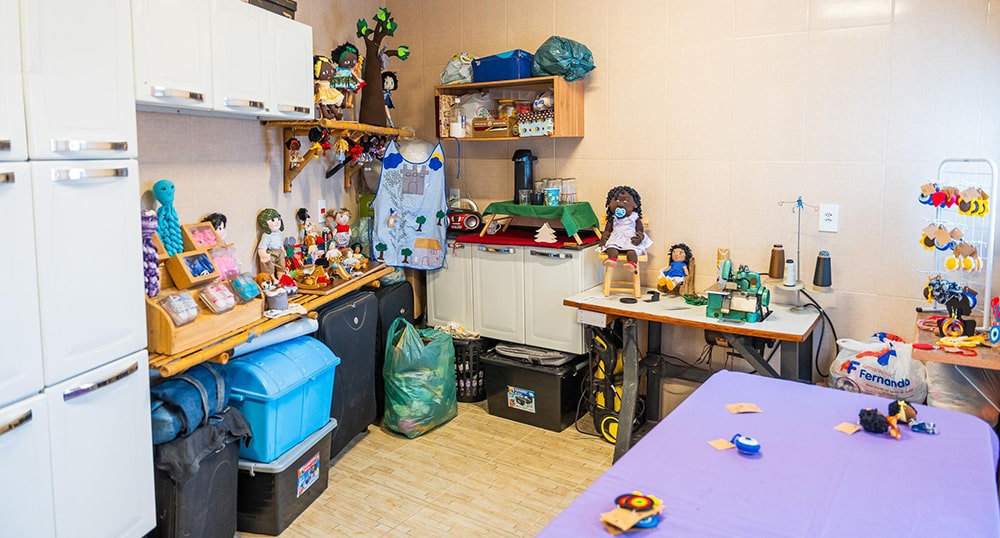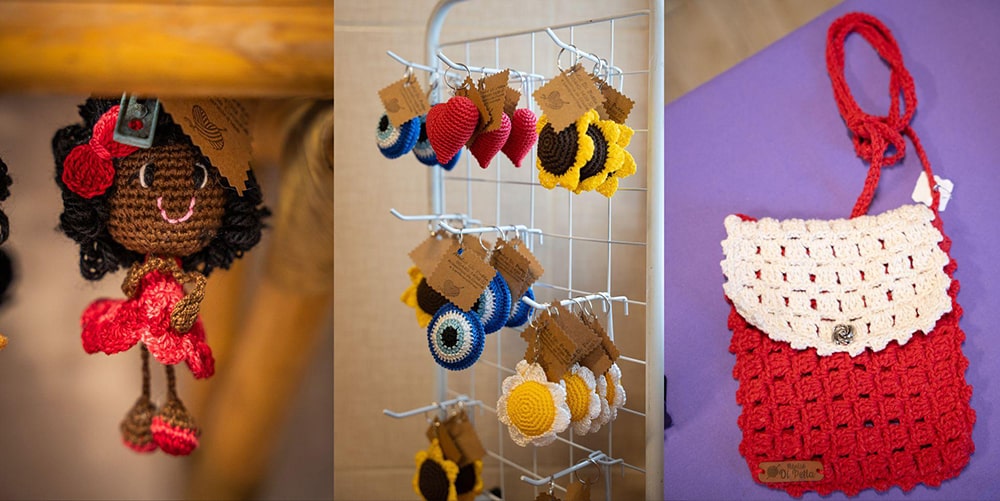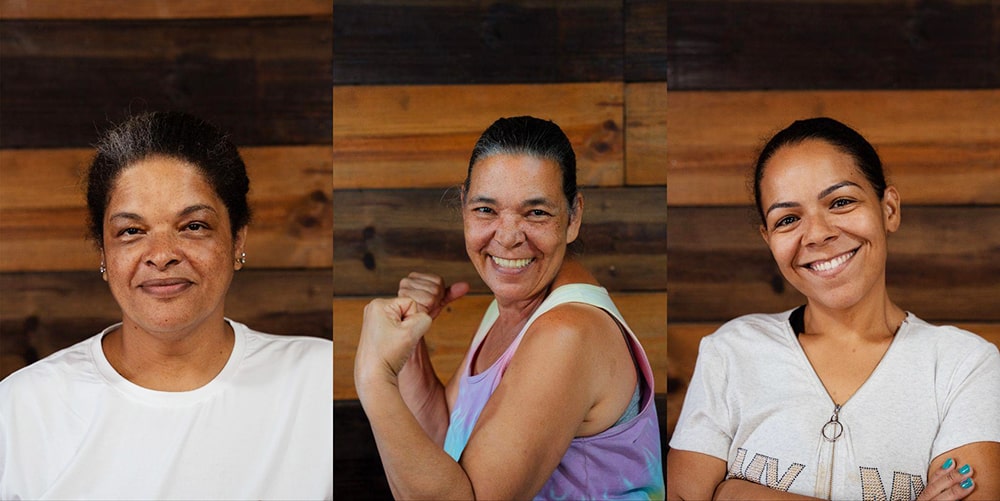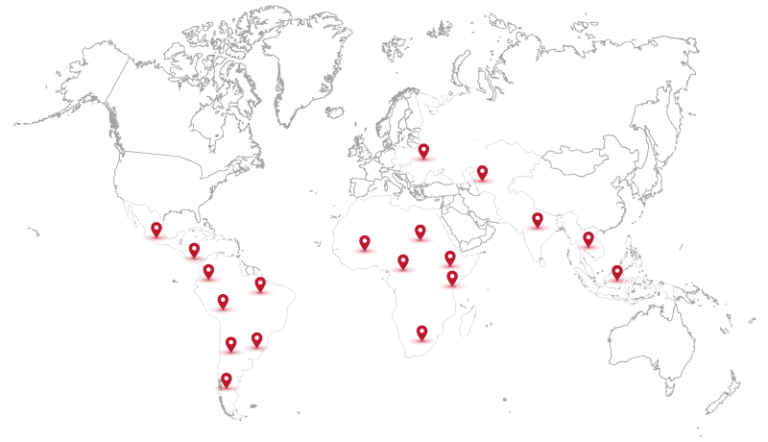Despite the rain and cold in Osasco, a city in the metropolitan region of São Paulo, Brazil, I was warmly welcomed into the home of Mrs. Maurisa di Petta (55), where the headquarters of the Tendarte collective of home-based workers is located. After climbing a few flights of stairs in the house that Mrs. Maurisa shares with her husband, two children, daughter-in-law, and grandson, we arrived in the room dedicated exclusively to the collective’s activities. Here, she, along with her two partners, Edna Simão (53) and Daniela di Petta (33), gather almost every day to work. They welcomed me to introduce me to their workspace and discuss their history, challenges, and main tasks.
Maurisa – or Mau, as she likes to be called – and Edna are experts in creating educational toys, handcrafting everything from games, puppets, and books to dolls and playful aprons that help tell classic children’s literature tales like “The Three Little Pigs” and “Jack and the Beanstalk.” This educational focus has helped them establish a close relationship with teachers and educators who purchase their dolls and games to assist them in teaching at local schools.
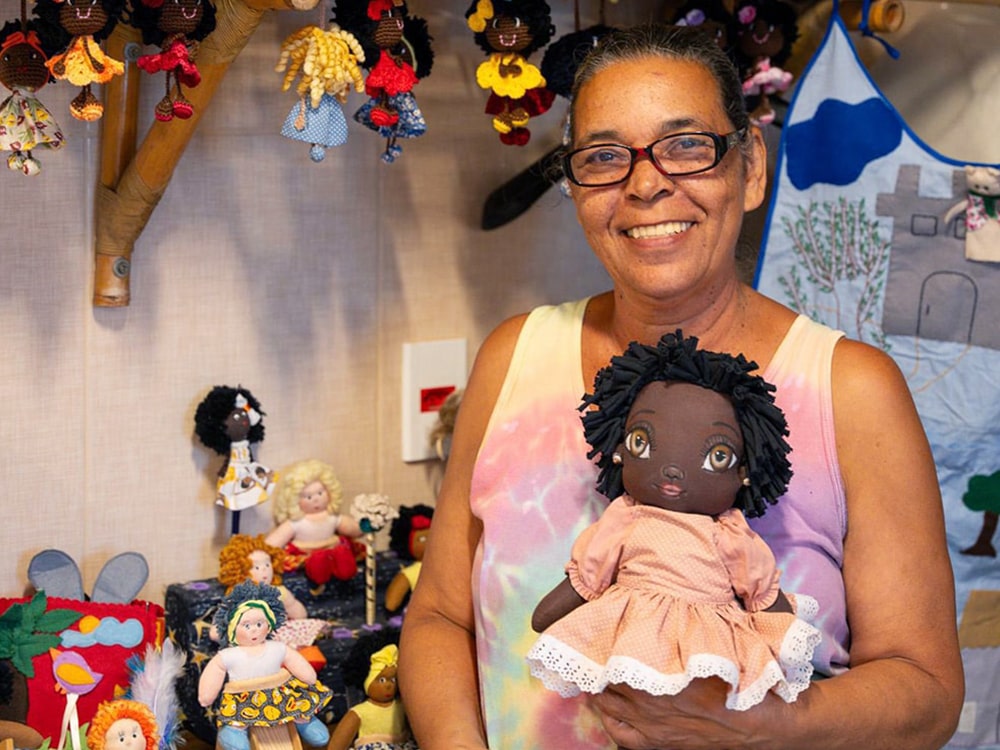
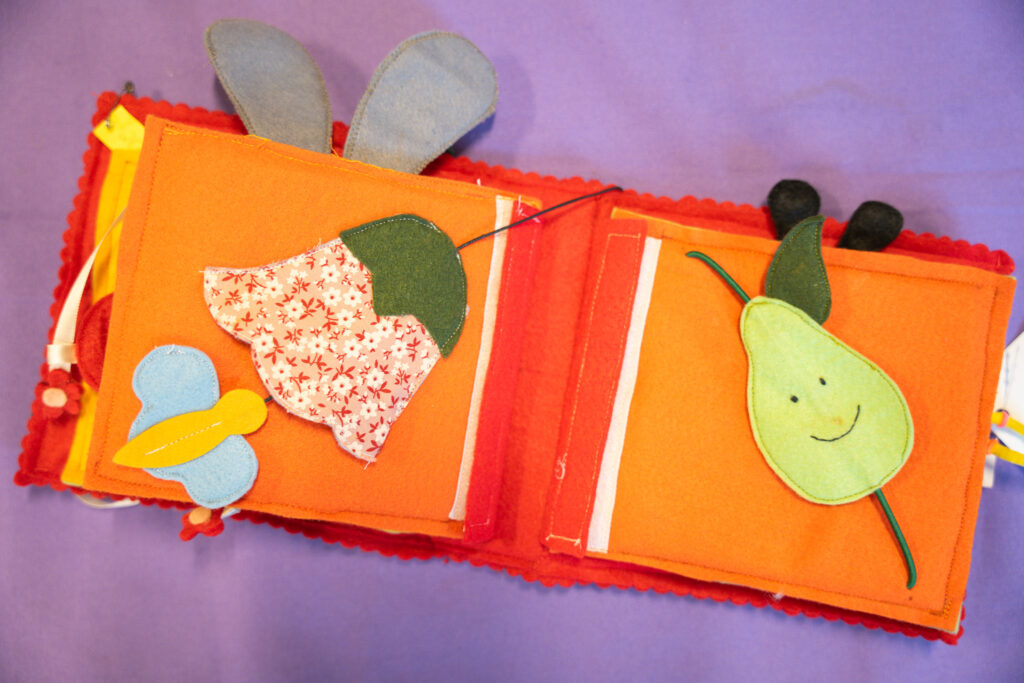
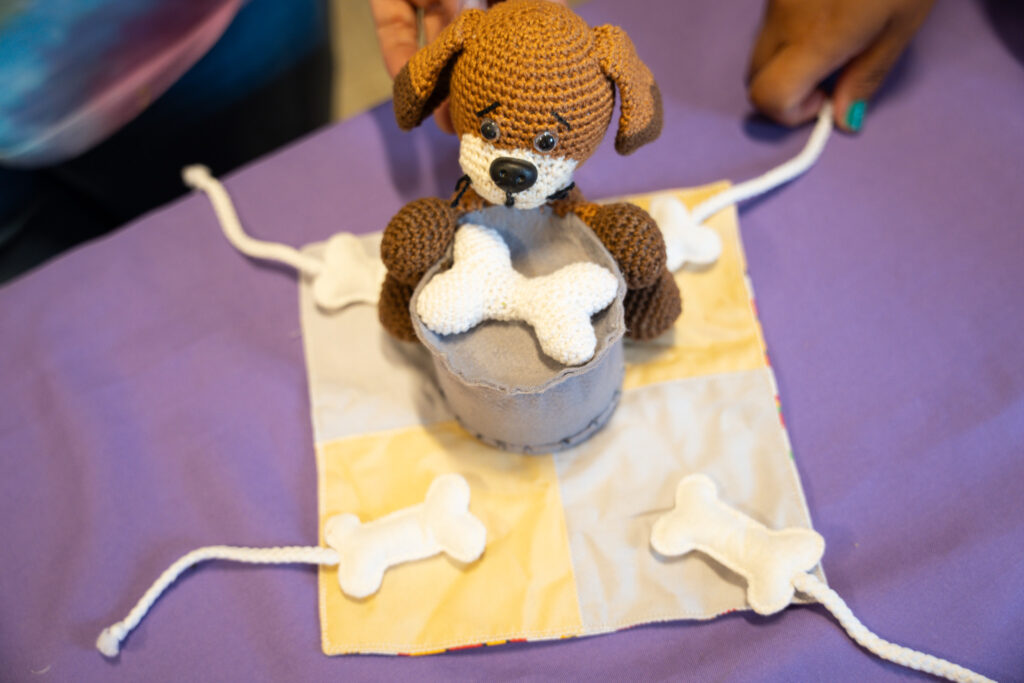
Daniela, on the other hand, specializes in crochet, producing earrings, keychains, clothing accessories, dolls and other items. The inspiration for her products comes from various unexpected places, such as the “bambolinas” – small traditional dolls from Italy. She began producing them but with a small adaptation: “They usually are white, and when we started making them here, we felt the need to add color and create darker colored dolls with curly hair, to represent our own kids.”
Edna started working from home in 2003 after getting married and having children. She shares her experience, saying, “I didn’t want to stop working, but also couldn’t leave my kids with anyone else, nor did I want to miss seeing them growing up.” She also emphasized the importance of crafting for the well-being of home-based workers: “More than anything, being a home-based worker was crucial for my mental health. Having an occupation and people around to exchange ideas and create is fundamental to keep our minds functioning.” Edna also talked about the support network created by home-based workers from the social solidarity economy: “We form a community and help each other, recommending jobs, assisting with the children, and organizing ourselves as a whole.”
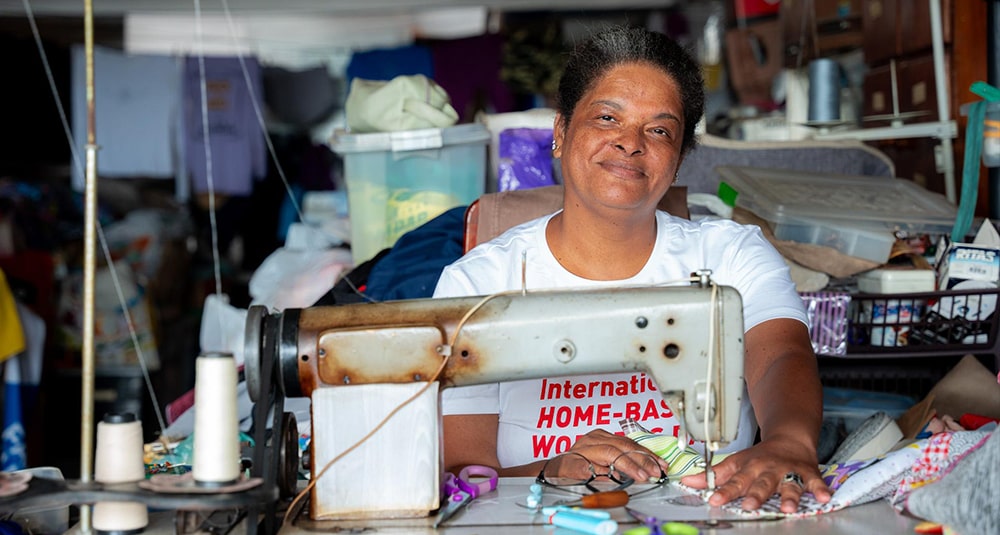
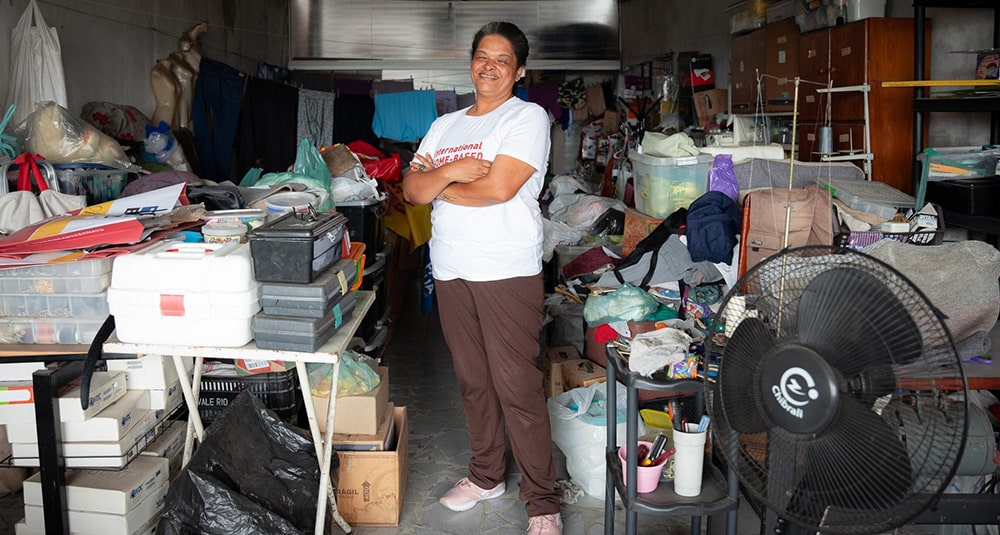
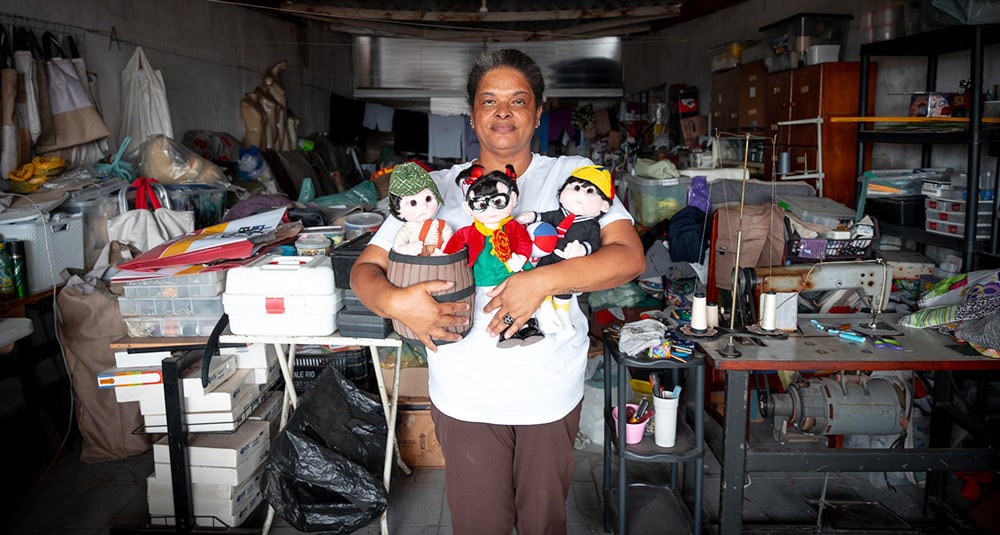
Mau and Daniela are mother-in-law and daughter-in-law, living together and sharing the upbringing of a 10-year-old, along with household errands and the collective’s activities. Initially, the meetings took place at the main headquarters of Tendarte, at Edna’s house, just a few minutes away. However, with the birth of her grandson and the changes brought about by the pandemic – with her husband and children also working from home – Mau transferred the activities to her home to facilitate the logistics of school, everyone’s meals, and sewing activities. “Now, with everyone staying at home and having the need to eat here, it’s easier for us to meet here. I prepare some packed meals, and everyone defrosts and eats whenever they want.”
In addition to their artisan work, the members of Tendarte also emphasized the importance of social causes in their lives. They highlight their commitment to feminism and the fight against racism, recognizing that these issues are interconnected and essential to promoting a just and equitable society. By working independently, being part of the social solidarity economy, and creating products that reflect diversity and inclusion, they contribute to awareness and empowerment, aligning their craftsmanship with essential values for building a better world.


